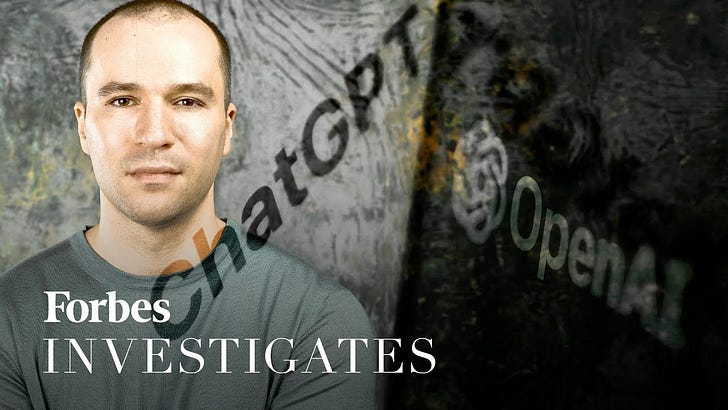What is relative are the possibilities.
What is absolute is the furthest limit of possibilities. The absence of absoluteness is impossibility because the lack of absoluteness confirms the furthest limit of possibility, encompassing anything, including impossibility.
If something is impossible anywhere, then it is impossible in every case, which becomes possible because the furthest limit can be in any way, and this is an impossibility, thus affirming the existence of an absolute possible boundary, however vast the impossibility may be. As long as what is considered impossible is seen as possible, it remains within the limits of what is possible (not exceeding the limit of absoluteness in any case).
Recognizing Contradiction vs Recognizing Impossibility
If something is contradictory or impossible, why can we discuss it? It is because the reality of contradiction is merely a mental deadlock (not an object outside of consciousness that can influence perception so that something can be "realized" except as a mental blockage—a neural deadlock in the brain where the impulse path is blocked).
Similarly, the impossible is only a concept whose reality is limited to mental deadlock in finding the existence of something.
Universality
Scientifically, from an empirical standpoint or from the logical consequences behind it, it cannot be denied that "the output does not exceed its input." It is indisputable that "actualization does not exceed its potential."
This means that there is always something behind cause and effect (actualization), which is its potential (its universality).
Psychedelics & Empiricism
Psychedelics in the realm of spirituality or empiricism in the non-spiritual realm are both realized through cause and effect relationships, which are possibilities from the universality that underlies them.
This means that from the perspective of daily life, religion, dogma, or any other viewpoint, everything is grounded in universality that we do not always know except through cause and effect (relative - possibilities).
The relative here does not affirm right or wrong but suggests that even what is wrong can happen because the relative represents possibilities, and even if we consider something right or wrong, it is still within the limits of what can occur.
Subjectivity
A wrong possibility is not an impossibility. The correctness or incorrectness does not make the relative impossible but relates to how subjectively an individual adapts by choosing a wrong option (subjective).
A correct possibility shows a choice that is subjectively determined (objective), representing proper adaptation by selecting one of the existing possibilities (relative).
Consistent Relativity
We can see consistency (repetition) in the relative elements of spirituality and its psychedelics. However, this consistency may only be relative (manifesting as probabilities) or universal, which underlies it.
The Diversity of Universality
Likewise, when the relative consists of diverse possibilities that are forms of actualization from universal potential, then universality also possesses diversity, which does not necessarily exist at a relative level.
The diversity of universality, which is realized differently from different perspectives, does not negate its universal absoluteness. From any viewpoint, it remains universal despite differences.
This is the diversity of universality observable from the perspectives of physics or mathematics.
Example:
Mathematics: The whole equals the sum of its parts.
Physics: Energy cannot be created or destroyed but can only be transformed.
Both perspectives show a diversity of viewpoints that are actually universal.
〰 Physics. If energy could be created, then the total would increase beyond the possible parts, which is impossible. This affirms the constant state.
〰 Mathematics. Because the state is constant (physics), its parts cannot exceed the whole that already exists (mathematics).
This is different in relative diversity, where possibilities are probabilistic (limited), while the diversity of universality is singular and expansive.
It's like a "sphere." In relative terms, there are areas of the sphere that cannot be observed, so the entire surface of the sphere is not visible, while the absolute perspective remains over the entire surface, although translated differently.
Relative & Absolute Perspective
A perspective on relative diversity does not cover all possible realities, while a perspective on universal diversity encompasses all relative possibilities.
Cognitive Bias & Dimensional Bias
In simpler terms ...
〰 Cognitive Bias. A relative perspective is limited by observation, so its objectivity is also limited.
〰 Dimensional Bias. Meanwhile, an absolute perspective is not limited by observation but is contextual. Therefore, the whole is understood differently depending on the depth of the context. The deeper our cognition, the less bias there is, but we see different contexts, not because they are in different areas but because they differ in depth.
Cognitive Bias can lead to misunderstanding within the same dimension, focusing incorrectly on different areas of the same surface of a sphere.
Dimensional Bias can lead to misunderstanding across different dimensions, focusing incorrectly on different depths of the same surface of a sphere.
Perspective & Dimensional Depth Limitations
Does this mean that absoluteness is no longer universal? Not at all, because universality is still expansive but limited in dimensional depth.
Perspective & Context
1⃣ Universality. The broadness of perspective in one dimension (context) is a universal perspective.
2⃣ Relativity. The limitation of perspective within one dimension (one context viewed in isolation) is a relative perspective.
3⃣ Relativity (Diversity) of One-Dimensional Universality. The broadness of perspective in one dimension (context) is a universal perspective but from a different side, still universally valid and containing relative (diverse) possibilities.
〰 Like the universality of the number 2, understood absolutely as "the existence of 2," "the appearance of 2," "the state of 2," "the difference of 2," "the function of 2."
It's like a ball with a contoured surface, realized differently from different perspectives but with the same overall breadth.
4⃣ Relativity (Diversity) of Multi-Dimensional Universality. The broadness of perspective across different dimensions is a universal perspective but from different dimensions (deeper), still universally valid and containing relative (diverse) possibilities.
It's like a ball with layered surfaces, realized differently from different dimensional depths (layers), but with the same overall breadth.
Context Differences
However, in relative (non-universal) diversity, contextual differences can cause misunderstandings. In absoluteness, although relative, these contextual differences are not absurd because they are tied to a more fundamental parent context.
Religion & Psychedelics
So, despite the differences between religions, they are universally grounded in something we don't always understand. The differences lie in how far the possibilities (how far the relative is considered impossible or not) are seen as impossible, which means finding out if the relative possibilities are indeed based on universality or outside of it (which would mean impossibility).
I am not discussing the point of contention here but where the boundary of possibility (the boundary of universality) lies relevant to spirituality.
Because everything is based on universality, spirituality and psychedelics (hallucination symptoms, trance as psychedelic symptoms) are also based on universality.
Because universality is the furthest limit of possibility, we only interact within possibilities (relative), so spirituality also has relative phenomena that allow us to interact spiritually, whether in dreams, hallucinations, or what is known as psychedelics or trance or other spiritual experiences.
📌 From here, we can see that when religion offers a universal perspective like "Oneness" or other spiritual concepts that align with religion, it doesn't mean ...
1⃣ "There's no issue with psychedelic experiences revealing religious truths" ❌
2⃣ Although psychedelic experiences can reveal religious truths, religion is still correct in affirming the dangers of seeking universal truth through psychedelics. ✅
📌 WHY are Psychedelic Experiences not the optimal and correct choice?
1⃣ SAFETY. Psychedelic experiences do not offer the highest level of internal safety, except for the need for a sitter, and they do not offer the highest level of physical safety.
2⃣ DIMENSIONAL DEPTH OF UNDERSTANDING. They do not offer dimensional knowledge deeper than what religion provides, so through psychedelics, one does not get closer to a complete understanding of a transcendental experience.
In general, regardless of whether religion is seen as risky or not, in principle, when something offers greater safety and deeper understanding, that is the choice (religion—regardless of not yet fully understanding it).












Share this post